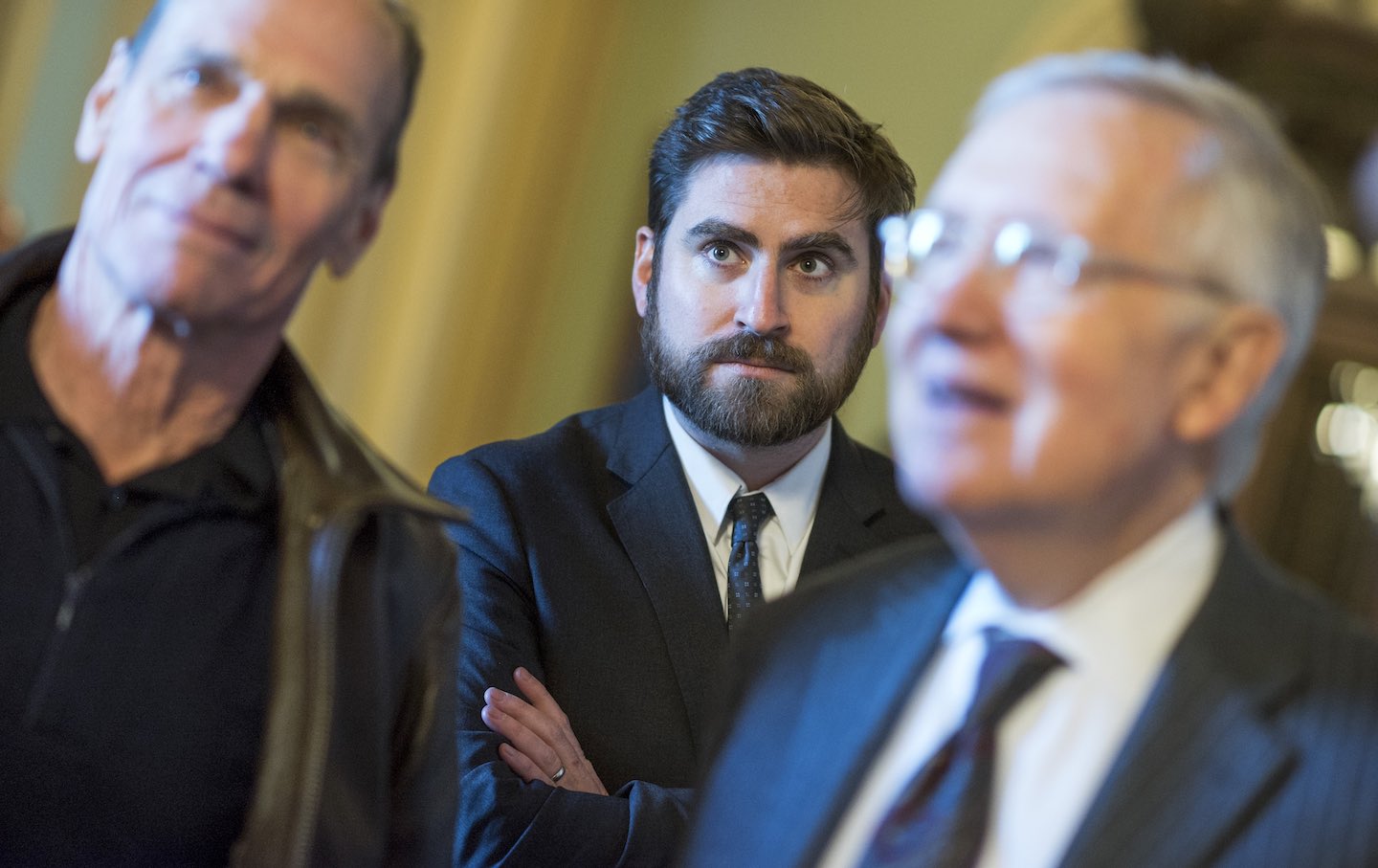
On Thursday evening, the Justice Department announced an indictment against former FBI Director James Comey, alleging that he made false statements to Congress. This development, however, is only part of a larger narrative that highlights the troubling tactics employed by the Trump administration against its political adversaries.
Just last week, President Donald Trump posted, then quickly deleted, what appears to be a direct order to Attorney General Pam Bondi to target three of his perceived political enemies: Comey, Senator Adam Schiff (D-CA), and New York Attorney General Letitia James. This behavior underscores the alarming trend of weaponizing the legal system against political opponents.
Among those targeted is Democratic Representative LaMonica McIver (D-NJ), who is facing up to 17 years in prison for allegedly making physical contact with federal law enforcement officers during the arrest of Newark Mayor Ras Baraka. Notably, the charges against Baraka were dropped, with a federal magistrate judge labeling his arrest as a “worrisome misstep,” yet McIver’s case remains pending.
McIver has been charged under a federal law prohibiting anyone who “forcibly assaults, resists, opposes, impedes, intimidates, or interferes” with federal law enforcement officers. While it is clear that McIver was involved in an attempt to obstruct the arrest of Baraka, the notion that her actions were “forcible” is questionable at best. A video depicting the chaotic scene shows officers repeatedly engaging with McIver, raising legitimate concerns about the validity of the charges against her.
Despite the unlikely prospect of a conviction, the financial strain of mounting a legal defense poses a serious threat to McIver. House ethics rules prohibit her from accepting pro bono assistance, meaning she must either fund her defense—which could easily cost hundreds of thousands of dollars—or rely on campaign funds, draining resources crucial for her re-election efforts.
The implications of this political targeting extend beyond just McIver. The Trump administration’s strategy presents a dangerous precedent, demonstrating a willingness to use dubious criminal charges against elected Democrats to undermine their ability to serve effectively. Even if McIver is eventually exonerated, the process itself serves as a tool of intimidation, forcing lawmakers to divert campaign funds or personal finances towards legal battles.
Furthermore, McIver’s case tests the limits of a constitutional provision designed to protect lawmakers from executive overreach. The Speech and Debate Clause is intended to prevent intimidation and ensure that members of Congress can perform their duties without fear of repercussions from the executive branch. If courts fail to dismiss these charges, it signals a disturbing shift where federal lawmakers can no longer rely on constitutional protections against politically motivated prosecution.
In May, McIver, along with two other Congress members, visited an ICE detention center for an oversight tour, a right granted by law that allows federal lawmakers to access immigrant detention facilities without prior notice. However, the facility’s staff initially stonewalled the visit, leading to an escalating situation when Baraka attempted to enter and was later forcibly removed by federal agents.
As law enforcement attempted to arrest Baraka, McIver and her colleagues created a barrier around him in a show of solidarity. During the ensuing chaos, McIver made brief contact with an officer, which the administration is now framing as criminal behavior. The juxtaposition of McIver’s charges with the treatment of January 6th insurrectionists, many of whom assaulted law enforcement officers yet received pardons, highlights the selective nature of the prosecution.
McIver’s defense hinges on two constitutional arguments: that she is the target of selective prosecution due to her political stance, and that her actions were protected under the Speech and Debate Clause. While selective prosecution claims are challenging to prove, McIver’s case draws attention to the disparity in treatment between her and Trump supporters who engaged in violent acts at the Capitol.
Moreover, the Trump administration’s failure to consult with the Justice Department’s Public Integrity Section before prosecuting McIver further reinforces the notion of political motivation behind these charges. The timing of the suspension of this policy, just days before McIver’s indictment, raises significant ethical questions.
If Trump is permitted to pursue questionable prosecutions against Democratic lawmakers, he effectively achieves his authoritarian goals without needing to secure convictions. This strategy serves to bankrupt political opponents and deter others from challenging him, particularly as Democratic members of Congress represent a significant threat to his power.
While the courts may not be able to prevent frivolous charges from being filed, they do have the power to quickly recognize political prosecutions and dismiss them. The fundamental purpose of the Speech and Debate Clause is to protect lawmakers from intimidation by the executive; should the judiciary fail to uphold this principle, it signals a disheartening erosion of constitutional safeguards.
In conclusion, the situation surrounding Rep. LaMonica McIver is a clear illustration of the lengths to which the Trump administration will go to silence dissent and undermine the democratic process. McIver’s ongoing legal battle is not just about her individual case; it represents a broader struggle against the politicization of the justice system and the essential need for robust protections for lawmakers engaged in their duties.


